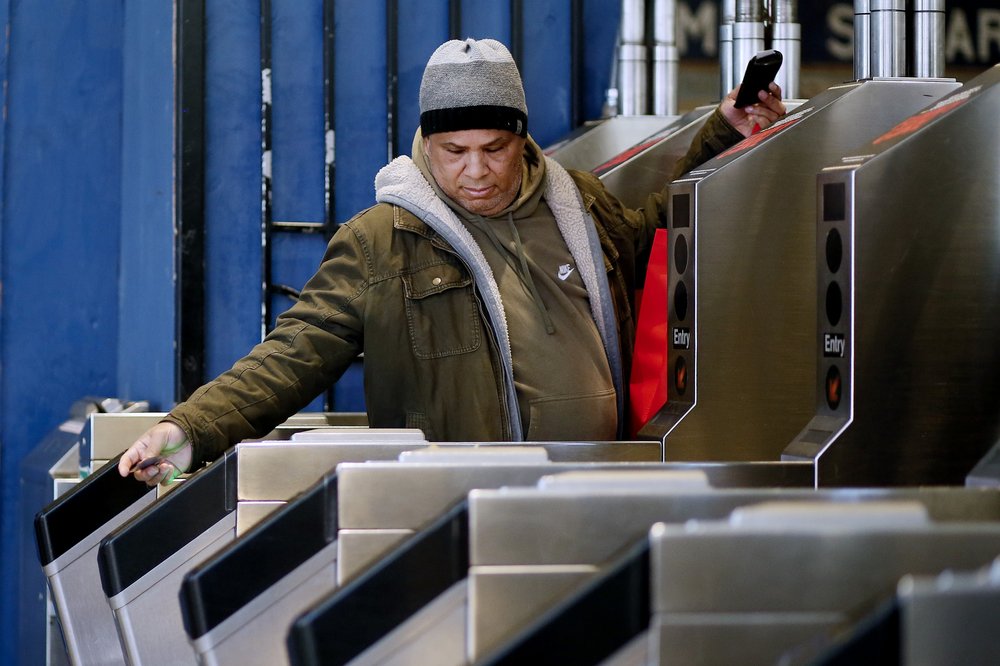NYC subway and bus fares rising to $3 in 2026, MTA officials say
July 30, 2025, 12:38 p.m.
Fares have been $2.90 since 2023.

New York City subway and bus fares are expected to go up to $3 on Jan. 4, MTA officials announced during the agency’s monthly board meeting Wednesday.
With a full transition to OMNY, the MTA announced it would also eliminate the 30-day unlimited fare option, making the seven-day fare cap the only way to get unlimited rides.
“It was a breakthrough three decades ago, but they’re regressive, use it or lose instruments, we’re just done with them,” Jessie Lazarus, the MTA's deputy chief for commercial ventures.
The proposed changes must be approved by the MTA board.
Mayor Eric Adams criticized the proposal, saying “Proposing a fare hike without demonstrating meaningful improvements is offensive to hard-working New Yorkers,” and urged MTA board members to vote it down.
The new fare increase also raises the cost of the fare capping program — the amount riders can spend on subway and bus fares over a seven-day period at $36, up from $34 now, so long as they tap to pay with the same smartphone or credit card. After riders spend $36 they’ll get unlimited rides for the rest of the seven-day period.
The MTA is also introducing a new unlimited weekly pass for express bus users once they spend $67 in a week, similar to the seven-day unlimited pass subway and bus riders who use OMNY have now.
Commuter trains will also cost 4.4% more and tolls on bridges and tunnels will rise 7.5% — an increase the MTA said it needs to meet inflation and revenue goals. Metro-North and Long Island Rail Road riders will also no longer be able to buy round-trip tickets, rather they’ll have day passes that expire four hours after being activated.
Drivers who use E-ZPass will see a 52-cent increase on the RFK, Whitestone, Throgs Neck, Verrazzano bridges as well as the Queens-Midtown and Brooklyn-Battery tunnels. The Henry Hudson Bridge toll will go up 24 cents and the Cross Bay and Marine Parkway bridges' tolls will increase 20 cents.
Congestion pricing rates will not change.
The cost of a reusable OMNY card will increase from $1 to $2 next year.
The MTA is planning to phase out the MetroCard completely by the end of December, forcing all subway and bus riders to use OMNY. The agency announced it will stop selling MetroCards in January, and will no longer accept MetroCards later in 2026, although the MTA didn’t give an exact date.
Lazarus said it costs the MTA $20 million annually to maintain MetroCard machines and buy physical cards.
The MTA has built into its budget a 4% fare hike every two years. The last fare hike was in 2023. The agency is still planning to increase fares again in 2027 and again in 2029.
Danny Pearlstein of the Riders Alliance said the city should make enrolling in the discounted Fair Fares program easier in order to offset the hike for low-income riders.
"As fares rise, struggling riders need relief from City Hall with more Fair Fares, automatic enrollment tied to other benefits, and free fares for New Yorkers in poverty,” Pearlstein said. “The Council has grown Fair Fares. Now it's time to transform it to save many more riders much more money.”
The MTA insists it's done everything it can to promote the program.
“We’re not part of the affordability problem, we’re part of the affordability solutions,” MTA Chair Janno Lieber said. He said he’s encouraged the city to advertise the program more widely.
This story has been updated with comment from Mayor Eric Adams.
MTA plans fare hike as MetroCard era comes to an end MTA to stop selling MetroCards by end of 2025 as NYC transit fares move to OMNY